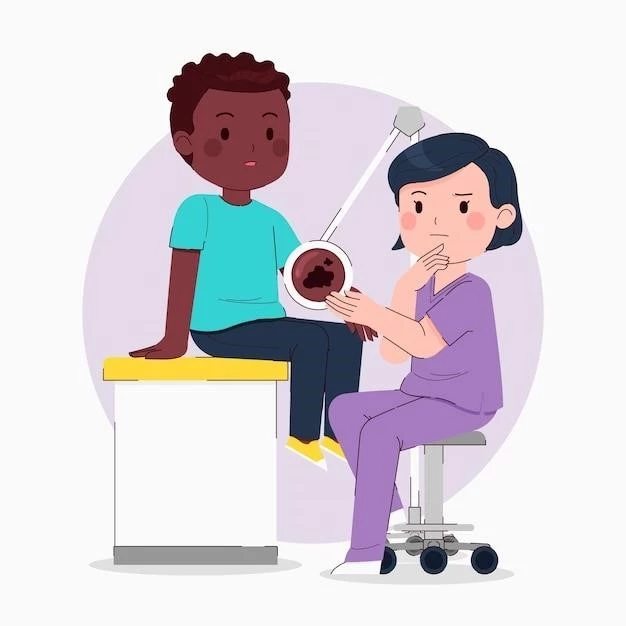Garret–Tripp Syndrome
Overview of Garret–Tripp Syndrome
Garret–Tripp syndrome is a rare genetic disorder characterized by developmental delays, intellectual disability, speech delays, hypotonia, seizures, microcephaly, facial dysmorphism, aggressive behavior, and self-injurious behavior․ This syndrome is caused by a chromosome mutation․
Children with Garret–Tripp syndrome often require significant medical management to address their complex needs․ The management of this syndrome typically involves a multidisciplinary approach to address the various symptoms and challenges associated with the condition․
Individuals with this syndrome may benefit from physical therapy to improve motor skills, occupational therapy to enhance daily living skills, speech therapy to address communication difficulties, and behavioral therapy to manage behavioral issues․ Early intervention plays a crucial role in improving outcomes for individuals with Garret–Tripp syndrome․
Supportive care is essential to provide individuals with the best possible quality of life․ Research studies are ongoing to further understand the underlying mechanisms of the syndrome and to explore potential treatment options to improve the lives of those affected by Garret–Tripp syndrome․
Causes and Diagnosis
Garret–Tripp syndrome is primarily caused by a chromosome mutation, which leads to the characteristic symptoms associated with the disorder․ The specific genetic defect responsible for the syndrome is not yet fully understood, and further research is ongoing to elucidate the exact genetic mechanisms involved․
Diagnosis of Garret–Tripp syndrome is typically suspected based on the presence of developmental delays, intellectual disability, speech delays, hypotonia, seizures, microcephaly, facial dysmorphism, aggressive behavior, and self-injurious behavior․ Genetic testing, including chromosomal microarray analysis, is often used to confirm the diagnosis․
A thorough clinical evaluation by a medical geneticist or healthcare provider familiar with rare genetic conditions is essential for an accurate diagnosis․ Early diagnosis is crucial to initiate appropriate medical management and interventions to improve the overall quality of life for individuals with Garret–Tripp syndrome․
Genetic counseling is recommended for families of individuals diagnosed with the syndrome to understand the inheritance pattern and to provide support and guidance regarding the implications of the diagnosis for family members and future pregnancies․
Medical Management
Medical management of Garret–Tripp syndrome involves a comprehensive approach to address the diverse needs of individuals affected by the disorder․ Treatment plans are tailored to manage the specific symptoms and challenges presented by each individual with the syndrome․
Medications may be prescribed to control seizures, manage behavioral issues, and alleviate other associated symptoms․ Regular monitoring by healthcare professionals is essential to evaluate the effectiveness of medications and adjust treatment plans as needed․
In addition to pharmacological interventions, individuals with Garret–Tripp syndrome may benefit from regular medical assessments to monitor growth and development, manage comorbid conditions, and address any health concerns that may arise․
A proactive and collaborative relationship between healthcare providers, specialists, therapists, educators, and families is crucial to ensure the holistic well-being of individuals with Garret–Tripp syndrome․ This coordinated approach helps optimize treatment outcomes and enhance the quality of life for those affected by the disorder․
Therapies for Garret–Tripp Syndrome
Therapeutic interventions play a crucial role in supporting individuals with Garret–Tripp syndrome to reach their full potential and improve their quality of life․ A multidisciplinary approach involving various therapies is often employed to address the diverse needs of individuals affected by the syndrome․
Physical therapy aims to enhance motor skills, coordination, strength, and mobility․ Occupational therapy focuses on developing daily living skills, fine motor skills, and enhancing independence in activities of daily living․ Speech therapy addresses communication challenges and helps individuals develop language and social communication skills․
Behavioral therapy is instrumental in managing behavioral issues, including aggressive behavior and self-injurious behavior, commonly observed in individuals with Garret–Tripp syndrome․ Behavioral therapists work with individuals and their families to implement strategies to address challenging behaviors and enhance social skills․
Individualized therapy plans are tailored to meet the specific needs and abilities of each individual with Garret–Tripp syndrome․ Consistent and structured therapy sessions, combined with ongoing evaluation and adjustments, are essential to maximize the benefits of therapy interventions and support the overall development and well-being of individuals with the syndrome․
Early Intervention and Research Studies
Early intervention is critical in the management of Garret–Tripp syndrome to optimize developmental outcomes and improve long-term functional abilities․ Early identification of the syndrome and timely initiation of interventions can help mitigate the impact of the disorder on the individual’s development․
Research studies are ongoing to expand our understanding of Garret–Tripp syndrome, including the underlying genetic mechanisms, potential treatment options, and strategies to enhance the quality of life for individuals with the disorder․ These studies aim to uncover new insights that may lead to improved therapeutic approaches and support strategies․
Participation in research studies provides individuals with Garret–Tripp syndrome, their families, and healthcare providers the opportunity to contribute to the advancement of knowledge about the syndrome and participate in innovative treatment options․ By actively engaging in research efforts, the scientific community can make strides towards improving the care and outcomes for individuals affected by Garret–Tripp syndrome․
Conclusion
In conclusion, Garret–Tripp syndrome is a complex genetic disorder that presents with a range of developmental, cognitive, and behavioral challenges․ Through a multidisciplinary approach encompassing medical management, therapeutic interventions, early intervention, and ongoing research studies, individuals with Garret–Tripp syndrome can receive comprehensive care and support to address their unique needs․
Medical management focuses on symptom control, while therapies such as physical, occupational, speech, and behavioral therapy aim to enhance skills and improve quality of life․ Early intervention is pivotal in maximizing developmental outcomes, and research studies offer hope for advancements in understanding the syndrome and exploring new treatment options․
By fostering collaboration between healthcare providers, therapists, educators, researchers, and families, individuals with Garret–Tripp syndrome can receive holistic care that promotes their well-being and overall development․ Continued efforts in research and clinical management are essential to improve outcomes and enhance the lives of those affected by Garret–Tripp syndrome․

